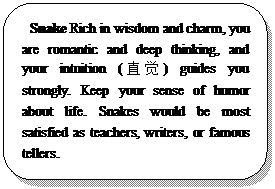题目内容
Is the world really going mad? 1day I was sitting in a restaurant 2 a quick and a talk with a few friends when it suddenly 3me that almost everyone in the restaurant was smoking. It wasn’t long 4the whole room was 5with smoke. I asked with an apology for6 to open a window to stop myself 7!
Nowadays air pollution is something that is hardly questioned any more. However, I still can’t walk down the street in any of the big cities without 8that people are 9the air pollution. It is time for the government departments of the world to introduce emission(废气排放) controls on all cars and 10the public transport system(公共交通体系) to encourage people to 11their cars at home. A friend of mine takes flying lesson each morning and it really makes him 12when he climbs above the smog layer(烟雾) and looks down 13it and thinks: “I’m breathing that!” this kind of14results from the bad management of resources. Waste things can 15should be treated properly. House building, road 16, and industrial development are all earthmoving( or earth-reducing) operations and can change the balances of 17created over millions of years. I would like to 18serious studies done on all these main works before they are built. Also, there should be 19national parks set up to keep the most beautiful parts of our countries in their natural 20
- 1.
- A.The other
- B.Another
- C.Every
- D.Each
- A.
- 2.
- A.asking for
- B.drinking
- C.having
- D.buying
- A.
- 3.
- A.seemed
- B.struck
- C.sank
- D.showed
- A.
- 4.
- A.ago
- B.after
- C.before
- D.now
- A.
- 5.
- A.full
- B.filled
- C.crowed
- D.parked
- A.
- 6.
- A.promise
- B.help
- C.suggestion
- D.permission
- A.
- 7.
- A.standing
- B.sitting
- C.talking
- D.dying
- A.
- 8.
- A.thinking
- B.persuading
- C.deciding
- D.learning
- A.
- 9.
- A.suffering
- B.dying
- C.walking
- D.standing
- A.
- 10.
- A.increase
- B.reduce
- C.improve
- D.raise
- A.
- 11.
- A.wash
- B.repair
- C.drive
- D.leave
- A.
- 12.
- A.sick
- B.tired
- C.foolish
- D.excited
- A.
- 13.
- A.on
- B.at
- C.from
- D.for
- A.
- 14.
- A.discussion
- B.question
- C.pollution
- D.operation
- A.
- 15.
- A.but
- B.yet
- C.still
- D.and
- A.
- 16.
- A.work
- B.construction
- C.building
- D.setting
- A.
- 17.
- A.life
- B.mind
- C.human being
- D.plants
- A.
- 18.
- A.see
- B.start
- C.enjoy
- D.pay
- A.
- 19.
- A.few
- B.any
- C.more
- D.no
- A.
- 20.
- A.situation
- B.states
- C.soils
- D.places
- A.
1.固定词组:the other day“几天前”选A。
2.固定词组:have a quick drink “喝了杯饮料。选C。
3.词义辨析;remembered记住, realized意识到,watched观察,注视,showed 展示,句意是:我突然意识到饭店的人都在抽烟。选B。
4.考查句型:It was not long before。。。“不久后就….”,选C。
5.固定词组:be filled with“充满了”选B。
6.open a window “打开窗户”,选D。
7.句意是:我请求打开窗户防止自己窒息。Dying符合句意,选D。
8.句意是:我还不能走在大城市的街上,不想到人们在遭受空气污染的。选A。
9.解析同上题的句意,,选A。
10.词义辨析:increase增加,reduce 减少,improve改善,raise提高。句意是:改善公共交通系统,选C。
11.leave their cars at home“把车留在家里”选D。
12.make sb sick“使某人生病”,选A。
13.look down at “低头看”。选B
14.This kind of pollution指的是air polltion,选C
15.and 是can和should的并列,表示废物能也应该被合理的解决。选D。
16.house building“房屋建筑”选B。
17.change the balances of life,选A。
18.see serious studies done “看到这些严肃的研究被进行”,选A
19.根据上下文,应该是有更多的国家公园被建成,选C。
20.in their natural states“处于自然的状态”选B。

 阅读快车系列答案
阅读快车系列答案Steve and Yaser first met in their chemistry class at an American university. Yaser was a(an) 36 student from Jordon. He wanted to learn more about American culture and hoped that he and Steve would become good friends. At first, Steve seemed very friendly. He always 37 Yaser warmly before class. Sometimes he 38 invited Yaser to eat lunch with him. But Steve seemed 39 after the first term was over. The two 40 classmates didn’t see each other very much at school. One day Yaser decided to call Steve. Steve didn’t seem very 41 in talking to him. Yaser was hurt by Steve’s change of 42 . “Steve said we were friends, ”Yaser complained(抱怨), “and I thought friends were friends 43 . ”Yaser is a little 44 . As a foreigner, he doesn’t understand the way Americans 45 friendship. Americans use the wor“friend”in a very 46 way. They may call both casual acquaintances(相识的人)and close 47 “friends”. These friendships are 48 on common interests. When the 49 activity ends, the friendship may fade. Now as Steve and Yaser are no longer classmates, their“friendship”has changed. In some cultures friendship 50 a strong life-long connection between two people. In these cultures friendships develop slowly, since they are built to 51 . American society is one of 52 change. Studies show that one out of five American families moves every year. American friendships develop quickly, and they may change just 53 quickly. Americans may at first seem friendly. But American friendliness is not always a(an) 54 of true friendship. Learning how Americans look at friendship can help non-Americans 55 misunderstandings.
| B. native | C. international | D. home |
| B. welcomed | C. invited | D. received |
| B. even | C. never | D. seldom |
| B. helpful | C. grateful | D. distant |
| B. normal | C. unusual | D. ordinary |
| B. shocked | C. interested | D. disappointed |
| B. relation | C. opinion | D. attitude |
| B. for once | C. for a time | D. for a while |
| B. confused | C. frightened | D. impressed |
| B. form | C. view | D. like |
46. A. general | B. unique | C. usual | D. strict |
47. A. relatives | B. companions | C. classmates | D. workmates |
48. A. depended | B. based | C. focused | D. set |
49. A. shared | B. connected | C. combined | D. chosen |
50. A. contains | B. damages | C. includes | D. means |
51. A. enjoy | B. last | C. appreciate | D. value |
52. A. slow | B. steady | C. rapid | D. similar |
| B. too | C. as | D. so |
| B. offer | C. advice | D. idea |
| B. ignore | C. forbid | D. forgive |
Steve and Yaser first met in their chemistry class at an American university. Yaser was a(an) 36 student from Jordon. He wanted to learn more about American culture and hoped that he and Steve would become good friends. At first, Steve seemed very friendly. He always 37 Yaser warmly before class. Sometimes he 38 invited Yaser to eat lunch with him. But Steve seemed 39 after the first term was over. The two 40 classmates didn’t see each other very much at school. One day Yaser decided to call Steve. Steve didn’t seem very 41 in talking to him. Yaser was hurt by Steve’s change of 42 . “Steve said we were friends, ”Yaser complained(抱怨), “and I thought friends were friends 43 . ”Yaser is a little 44 . As a foreigner, he doesn’t understand the way Americans 45 friendship. Americans use the wor“friend”in a very 46 way. They may call both casual acquaintances(相识的人)and close 47 “friends”. These friendships are 48 on common interests. When the 49 activity ends, the friendship may fade. Now as Steve and Yaser are no longer classmates, their“friendship”has changed. In some cultures friendship 50 a strong life-long connection between two people. In these cultures friendships develop slowly, since they are built to 51 . American society is one of 52 change. Studies show that one out of five American families moves every year. American friendships develop quickly, and they may change just 53 quickly. Americans may at first seem friendly. But American friendliness is not always a(an) 54 of true friendship. Learning how Americans look at friendship can help non-Americans 55 misunderstandings.
36. A. American | B. native | C. international | D. home |
37. A. greeted | B. welcomed | C. invited | D. received |
38. A. ever | B. even | C. never | D. seldom |
39. A. familiar | B. helpful | C. grateful | D. distant |
40. A. former | B. normal | C. unusual | D. ordinary |
41. A. excited | B. shocked | C. interested | D. disappointed |
42. A. mind | B. relation | C. opinion | D. attitude |
43. A. for ever | B. for once | C. for a time | D. for a while |
44. A. delighted | B. confused | C. frightened | D. impressed |
45. A. express | B. form | C. view | D. like |
46. A. general | B. unique | C. usual | D. strict |
47. A. relatives | B. companions | C. classmates | D. workmates |
48. A. depended | B. based | C. focused | D. set |
49. A. shared | B. connected | C. combined | D. chosen |
50. A. contains | B. damages | C. includes | D. means |
51. A. enjoy | B. last | C. appreciate | D. value |
52. A. slow | B. steady | C. rapid | D. similar |
53. A. very | B. too | C. as | D. so |
54. A. suggestion | B. offer | C. advice | D. idea |
55. A. avoid | B. ignore | C. forbid | D. forgive |



 C D
C D

